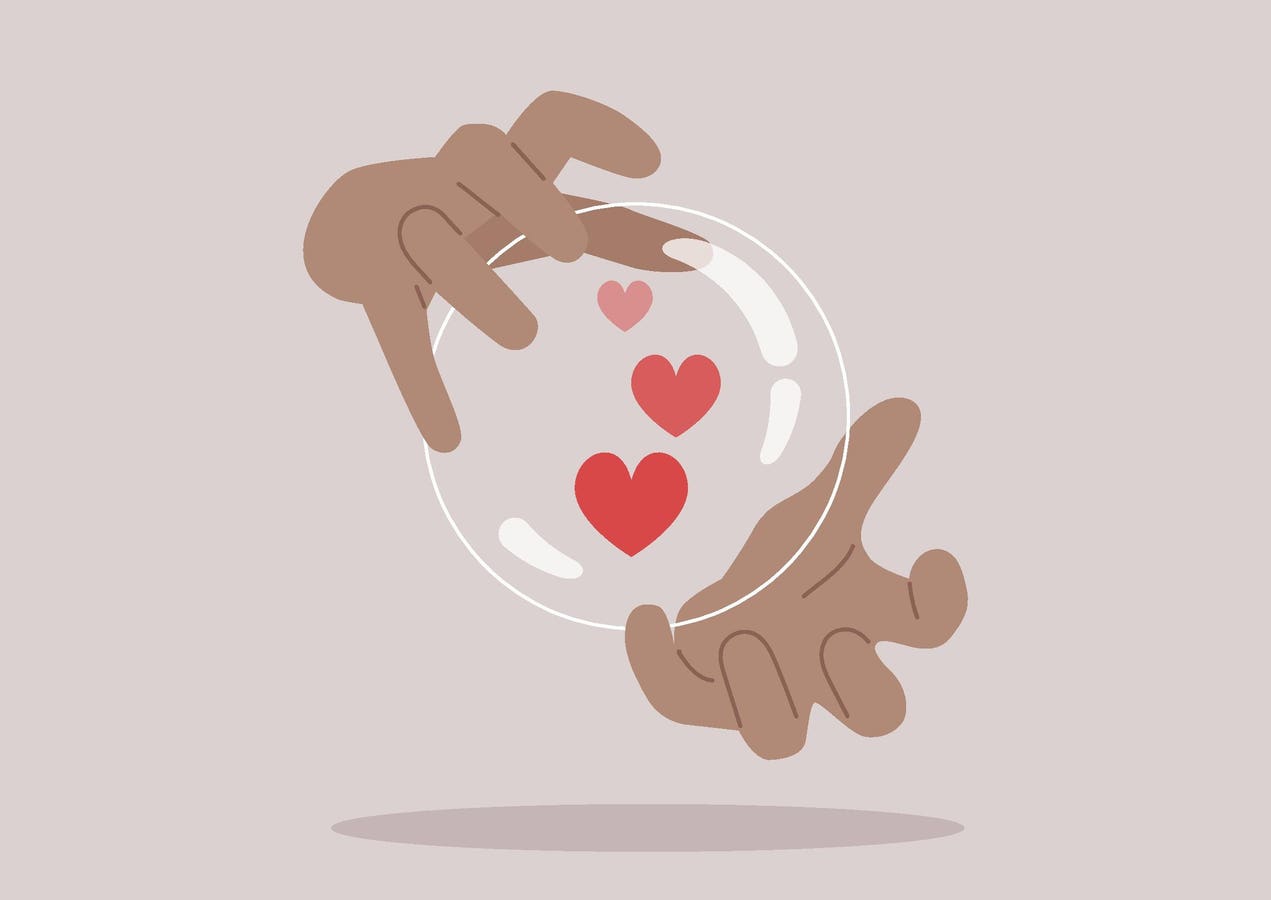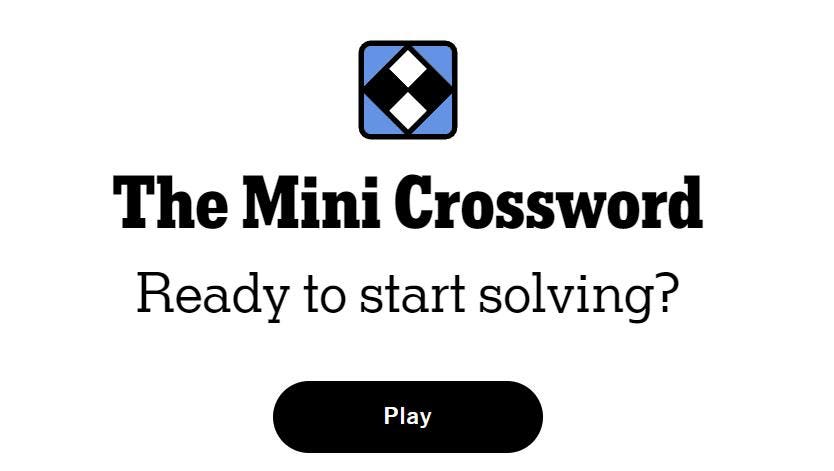Could your beliefs about love and relationships be setting you up for disappointment? Rethink these … More
We all carry internalized beliefs about what an ideal relationship should look like, how love is supposed to feel and how the “right” person would act in a relationship.
These beliefs usually become the guiding factor in how you judge people and show up in your relationships. Sometimes, these beliefs can be misguided, since they’re often a product of suggestions from your surroundings. These might be interpretations of love based on the relationships you grew up watching, advice you may have heard in passing or the idealized versions of love you’ve watched in movies.
While these may seem harmless or even helpful, it helps to pause and question the standards you hold for what you think is right or ideal in a relationship. This is because often, it’s not the relationship itself that causes frustration or doubt, but the assumptions you may have attached to it.
Reflecting on your assumptions can help bring awareness to whether your beliefs are setting your relationship up against an unachievable or impractical standard.
Once you begin to reflect, you may realize that some beliefs you’ve held onto are more limiting than helpful.
Here are three common relationship myths you should rethink.
1. Compromise Should Always Be 50/50
It’s common for people to believe that partners should always compromise equally in a relationship. This is natural because, in essence, it sounds fair to want a sense of evenness and balance in love. But the reality is, no matter how hard you try, love cannot be a perfectly balanced scale.
A relationship involves the coming together of two dynamic individuals, which means effort, sacrifices or needs will not always look the same.
Research published in the Journal of Social and Personal Relationships in 2012 supports this. Researchers explored the effects of daily sacrifices in romantic relationships on relationship satisfaction and how this might depend on a person’s attachment style. They found that the more difficult someone felt their own or their partner’s sacrifice was, the less satisfied they felt in the relationship that day. This may be because such sacrifices on either end can be overwhelming for both partners.
Additionally, researchers also found that when people made more sacrifices in a day, they usually felt more satisfied in their relationship. However, this largely applied to those with low attachment anxiety.
For people high in attachment anxiety — characterized by a strong desire for closeness and a need for reassurance in relationships — making more sacrifices didn’t make them feel better. This was probably because they were more concerned about whether their partner appreciated what they’d done for them.
Lastly, participants’ satisfaction didn’t change much based on how many sacrifices their partner made. Researchers suggest that this is likely because they didn’t always notice or know about these sacrifices.
The main takeaway is that more than the quantity of sacrifices, what matters is how those sacrifices are perceived and felt. Even small gestures can deepen connection when they’re made with ease and emotional attunement.
It’s important to keep in mind that a relationship is not about scorekeeping. Instead, it’s more helpful to cultivate open communication and make space for each other’s efforts, however big or small they may be.
2. If It’s Meant To Be, It Should Be Easy
We’re often conditioned to believe that a relationship should flow effortlessly or should not feel like “work” when it’s right.
However, that’s not the reality of a healthy relationship. The truth is, being willing to put in effort and working towards constantly evolving yourself and the relationship is a sign of emotional maturity.
“If it’s meant to be, it should be easy” is a very common “destiny belief;” the idea that two people are either meant to be or not. However, destiny beliefs can be detrimental to relationship longevity.
A two-year longitudinal study of over 900 couples found that those who strongly believed their relationship was “meant to be” started out more satisfied, surely. But they also gradually experienced faster declines in satisfaction over time.
This happened because when problems arose, destiny believers often saw these as signs their love wasn’t meant to last. Instead of working through difficulties, they tended to avoid tough conversations or even walk away. This is the result of having a very fixed mindset towards love and relationships.
In reality, relationships that last have often evolved with conscious effort from both partners. This happens because people who believe love is something you build through patience and growth tend to approach challenges with curiosity rather than panic.
So, a healthier approach to relationships is the mindset of “we build this together.” This mindset helps you embrace growth in love and build a relationship that truly stands the test of time.
3. You Must Heal Completely Before Entering A Relationship
Another common belief is that you need to be completely healed before you enter a relationship.
You may even think, “I’m too broken to date,” and hold back until you feel perfectly whole. But the truth is that healing is an ongoing process.
You don’t have to be completely “fixed” to build a meaningful connection. What’s more important is being self-aware and willing to grow alongside your partner to build a healthier and more authentic relationship.
A supportive partner can help you become a better version of yourself. No matter how “ready” you feel, there’s still a chance that inner wounds resurface unexpectedly — and that’s completely alright.
This does not mean you have to avoid being in a relationship altogether. This just means you still get to work on yourself as your relationship evolves.
A 2021 study published in Frontiers in Psychology explored whether providing daily support to one’s romantic partner, specifically related to physical activity, could also benefit the provider, rather than just the receiver.
Researchers studied overweight and inactive couples, questioning if helping one’s partner pursue fitness goals would improve their own health behaviors, emotional well-being and relationship satisfaction.
Sure enough, researchers found that on days when people provided more support to their partners, they engaged in more physical activity themselves (measured objectively via accelerometers). They also reported feeling happier, less stressed and more satisfied in their relationship the same day.
When your partner supports you, it can be inherently rewarding to them to be of help. It also encourages both partners to work toward shared goals.
When both partners show up with awareness, care and accountability, the relationship becomes a safe place for both partners to grow, where deeper healing can happen together.
Helping your partner may build a sense of connection and purpose, all of which enhance well-being for both partners. This shows that support strengthens relationships by making both partners feel valued.
That said, it’s also important to remember that your partner can only support you. It’s not their job to fix you, nor are they your “savior.” The way you take responsibility for your triggers, communicate your needs and show up with emotional honesty is what shapes the relationship.
In the end, what truly matters is showing up with self-awareness, a willingness to grow and the ability to offer and receive support.
Letting go of rigid relationship myths isn’t about lowering your standards. It’s a chance to re-evaluate your idea of right and wrong in love. When you challenge outdated beliefs, you can open yourself up to greater emotional growth.
Relationships don’t thrive because they meet some ideal checklist, but because both people are willing to show up as they are and are committed to co-creating something meaningful. The real magic lies in choosing each other through the discomfort and the healing, over and over again.
How many romantic myths do you subscribe to? Take the science-backed Belief In Marital Myths Scale to learn where you stand.








